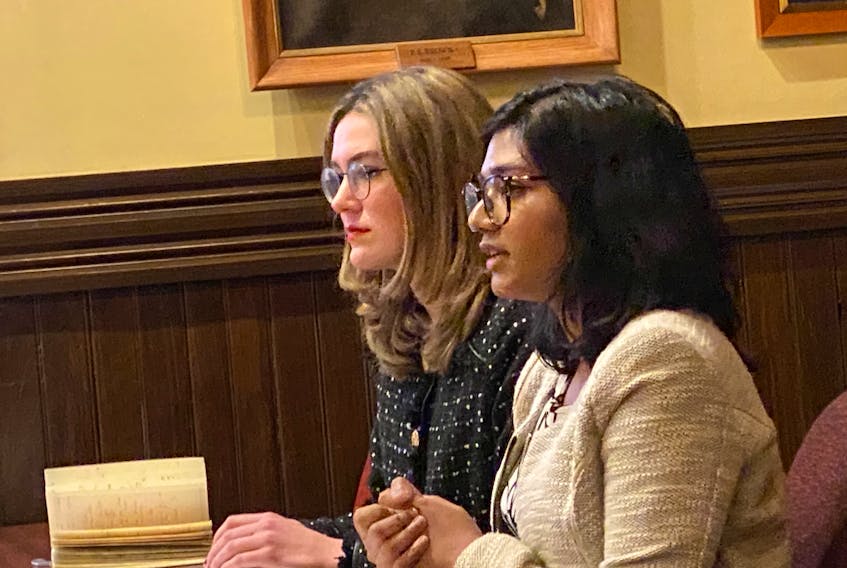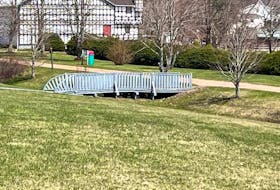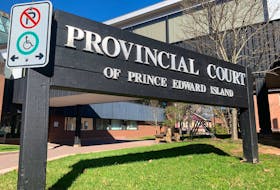CHARLOTTETOWN, P.E.I. — Student housing came before Charlottetown city council as the municipal government grapples with a slim vacancy rate.
University of Prince Edward Island student union vice-president of academic and external Sweta Daboo and president Emma Drake presented their concerns to council earlier this month.
“Short-term rentals do not benefit students,” said Daboo.
“If we look at regular assumptions that students would be attending classes from September to April and take summers off, it makes sense.”
However, Daboo said, many students do not take the summers off and depend on housing 12 months of the year.
Not having somewhere to live in the summer puts students in a “very vulnerable” position.
“The governing principle we are going to be talking about today will be that students require secure, affordable and accessible housing,” said Daboo.
UPEI has around 5,000 students, broken down into 30 per cent international students, 25 per cent out-of-province students and around 45 per cent in-province students.
Students most affected by housing are international and out-of-province students, said Daboo, who noted 92 countries are represented right now at UPEI.
“The concern that we have is that over the past few years, the number of students enrolled year-round has increased while the number of housing accommodations have decreased.”
The UPEI student union is recommending the city to place comprehensive regulations on short-term-rentals to relieve pressure on the rental market and make housing more accessible for students.
“More students are signing up for online courses than on campus courses, one of the factors of that is that simple, students cannot afford to live in Charlottetown during the summer due to a lack of accommodation.”
On average, said Drake, an undergraduate degree takes about five to six years to finish. She said this is because being students are starting to spread their studies over a longer period of time because they are working more part-time and full-time jobs to keep up with costs of post-secondary education.
Around 61 per cent of students at UPEI are working part-time jobs, while 7.1 per cent of students are working full-time during the fall and winter semesters and on through the summer months.
Around 2,200 students attend UPEI in the summer, with over 90 per cent of students living off-campus.
Drake also said the vacancy rate in Charlottetown combined the stress of short-term rentals in the summer months.
“All these factors cause considerable stress on the rental markets during the summer months,” she said.
Councillors questioned the UPEISU representatives on what housing is available to students both on- and off-campus, and what factors have contributed to housing shortages.
Coun. Greg Rivard said he was sensitive to the complexity of the housing situation.
“It is not a direct correlation. The success of short-term rentals and the low vacancy rate,” said Rivard.
“Let’s be honest, lots of things happened since 2015. Building development was at an all-time low … there was a big movement to bring people back to the province and a big push on PNP and immigration.”
The result was a massive population growth, said Rivard, with one of the unintended consequences being housing shortages.
“The purpose of this (presentation) today is that, with regulations being put forward, we hope in March, which can be a short-term solution to a very multi-layered problem, which has short-term and long-term solutions,” said Drake.
“We see this as an opportunity to act and support our students in the short-term.”









